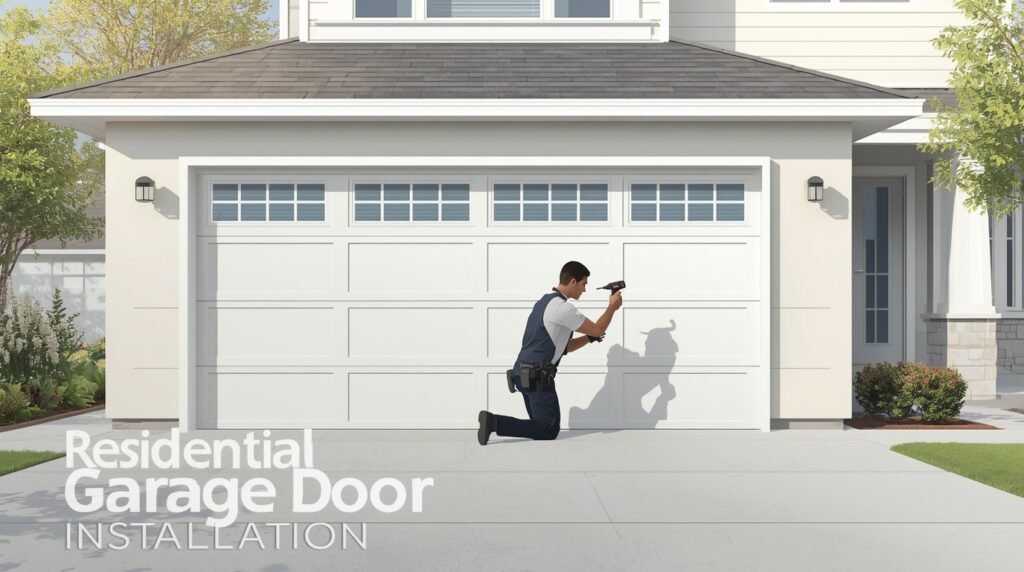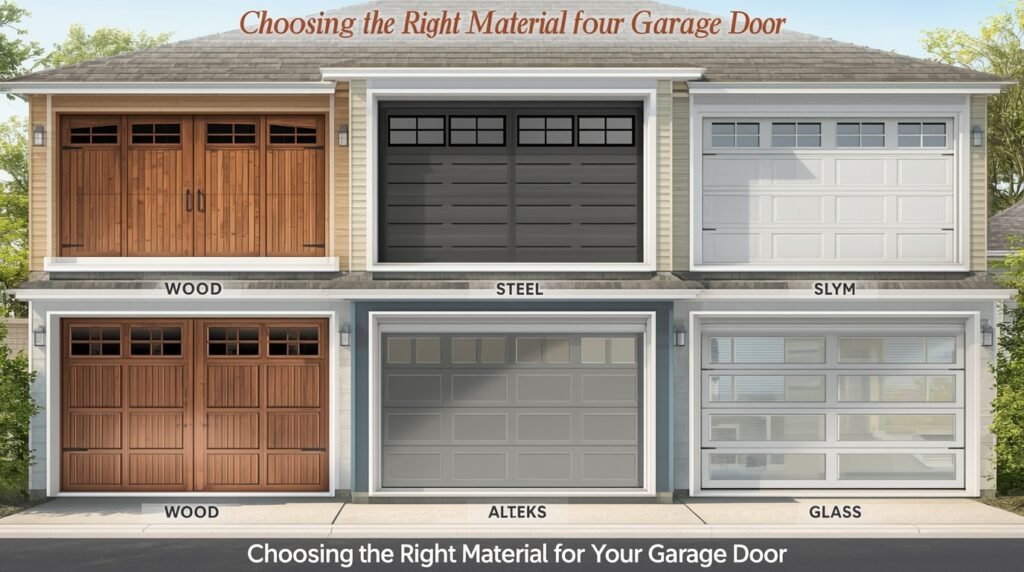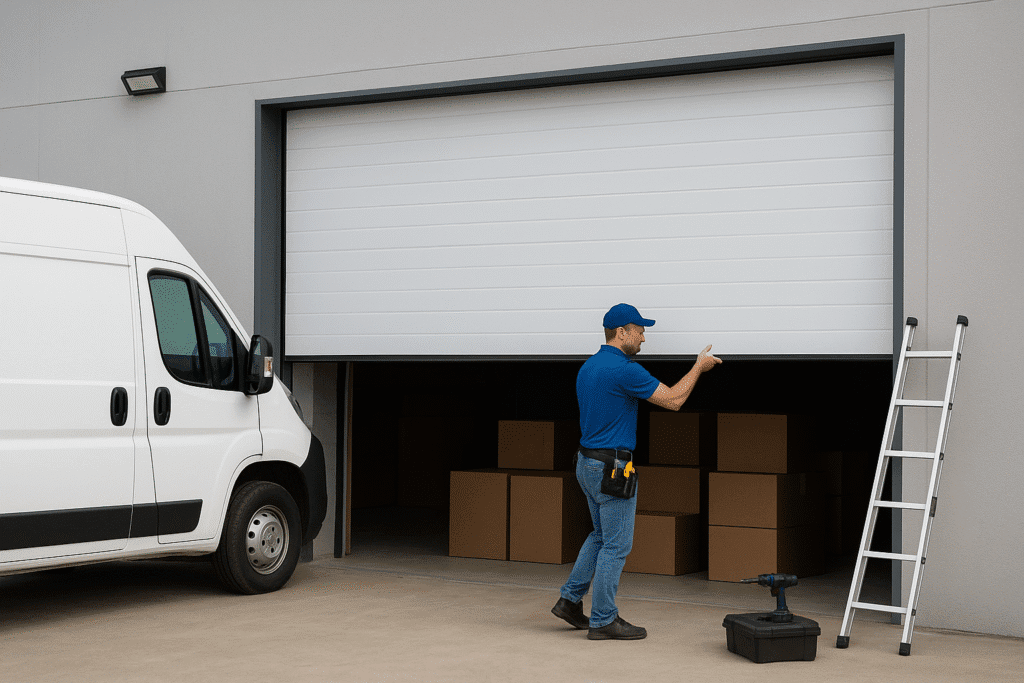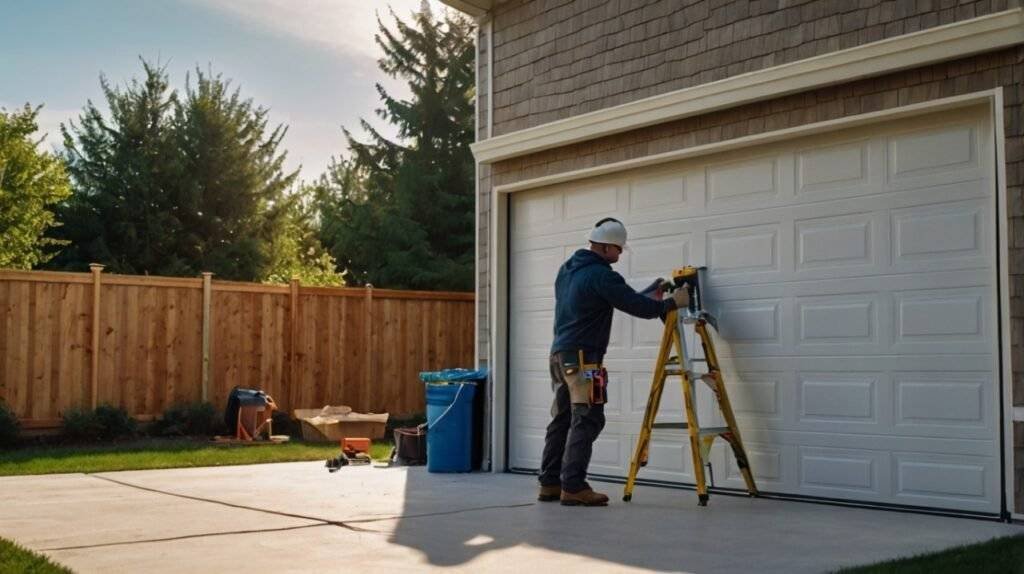Residential Garage Door Installation
Looking for expert residential garage door installation? We install stylish, durable garage doors that boost your home’s safety and curb appeal. Our friendly pros handle everything—from setup to cleanup—with care. Fast service, fair pricing, and quality guaranteed. Call today for your new garage door installation!

Understanding the Importance of a Quality Garage Door
When it comes to enhancing your home’s curb appeal and security, the garage door often takes center stage. It’s not just an entry point for vehicles; it serves as a barrier against the elements and potential intruders. A quality garage door can transform your home’s exterior while offering convenience and peace of mind. Whether you’re building a new home or updating an existing one, understanding residential garage door installation is crucial.
Choosing the right garage door involves more than simply picking a style you like—it requires careful consideration of various factors that affect functionality, aesthetics, and safety. With countless options available today, navigating through them can feel overwhelming. But fear not! We’re here to guide you through every step of the process—from selecting materials to understanding installation methods—ensuring that your investment pays off in both looks and performance. Let’s dive into what makes a great residential garage door!
Factors to Consider Before Installing a Residential Garage Door
When considering residential garage door installation, several factors come into play. First, assess your home’s architectural style. The design should complement the overall look of your property for a cohesive appearance.
Next, think about functionality. Do you need an automatic opener? How much space do you have for clearance? These aspects influence both convenience and usability.
Budget is another critical factor. Garage doors vary widely in price depending on material and features. Set a budget that aligns with your needs without compromising quality.
Consider climate conditions too; some materials withstand extreme weather better than others. If you live in an area prone to heavy rain or snow, opt for durable options like steel or fiberglass.
Check local regulations regarding permits or homeowners’ association guidelines before proceeding with any installation plans.
Different Types of Garage Doors and Their Features
When considering residential garage door installation, it’s essential to explore the variety of types available. Each type offers unique features that cater to different needs and preferences.
Sectional doors are among the most popular. They consist of several panels connected by hinges, allowing them to roll up into the ceiling. This design saves space and provides excellent insulation options.
Roll-up doors provide a compact solution for limited spaces. These sturdy doors roll directly into a drum above the opening, making them ideal for commercial settings or smaller garages.
Swing-out doors offer a classic look with their double-door design. They open outward on hinges, giving an elegant touch but requiring ample driveway space for operation.
Tilt-up doors combine functionality with aesthetics by tilting up and resting parallel to the ceiling when opened. Their simplicity makes them easy to operate while providing reliable security.

Choosing the Right Material for Your Garage Door
When selecting the right material for your garage door, consider durability and aesthetics. Steel is a popular choice for its strength and low maintenance requirements. It can withstand harsh weather conditions while providing excellent security.
Wood offers natural beauty and warmth but demands more upkeep. Regular painting or staining is essential to protect it from the elements. This option also allows customization in design.
Fiberglass stands out for being lightweight yet resilient against dents and rust. It’s an ideal choice if you want insulation without heavy maintenance.
Aluminum is another viable alternative, known for its corrosion resistance. It’s lighter than steel, making it easier to operate but may be less durable against impact.
Each material has unique properties that cater to different tastes, budgets, and environmental factors—taking these into account will guide you towards the best decision for your home.
The Installation Process: DIY vs Professional Installation
Installing a residential garage door can be an empowering DIY project. With the right tools and guidance, many homeowners successfully tackle it themselves. Online tutorials and manuals provide step-by-step instructions to simplify the process.
However, it’s not without challenges. Garage doors are heavy and require precise alignment for safe operation. Mistakes can lead to malfunction or safety hazards.
On the other hand, hiring a professional ensures expertise and efficiency. Experienced installers bring knowledge of local building codes and safety regulations. They also have specialized tools that make installation smoother.
Consider your comfort level with home improvement tasks when deciding between DIY and professional help. If you’re unsure about managing complex components or lifting heavy materials, investing in a pro may save you time—and potential headaches—in the long run.
Maintenance Tips for Your Residential Garage Door
Regular maintenance is essential for the longevity of your residential garage door. Start by lubricating moving parts, such as rollers and hinges, at least twice a year. This reduces friction and helps prevent wear.
Next, inspect the weather stripping along the bottom of the door. It keeps out drafts and water damage. Replace any worn or cracked pieces to maintain energy efficiency.
Don’t overlook cleaning your garage door’s surface regularly. Dirt can lead to rust or other damage over time.
Test the balance of your door periodically. Disconnect it from the opener and manually lift it halfway; if it doesn’t stay in place, you may need professional adjustment.
Check safety features like reverse mechanisms annually to ensure they function properly. Keeping up with these simple tasks will enhance both performance and security while extending its lifespan significantly.
Conclusion
When it comes to residential garage door installation, taking the right steps can make all the difference. A quality garage door is not just about aesthetics; it plays an essential role in security and energy efficiency. By considering factors like materials, styles, and whether you’ll tackle the installation yourself or hire a professional, you’re setting up your home for success.
Different types of garage doors come with unique features that cater to various needs and preferences. Selecting the appropriate material will impact durability and maintenance requirements significantly. Whether you lean towards wood for its classic charm or steel for its strength, each option has something special to offer.
For those who want hands-on involvement in their home’s upgrades, DIY installation might seem appealing. However, don’t underestimate the benefits of professional expertise; sometimes it’s worth investing a little more for peace of mind.
Regular maintenance is crucial to ensuring your residential garage door remains in top shape over time. Simple tasks like lubrication and inspection can extend its lifespan significantly.
Residential garage door installation may seem daunting at first glance but breaking it down into manageable components simplifies the process greatly. Your choice today shapes both functionality and style tomorrow.


